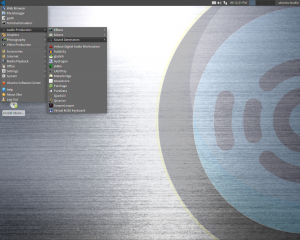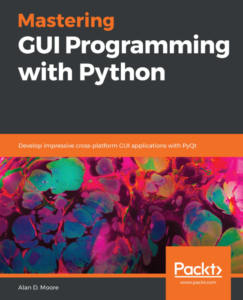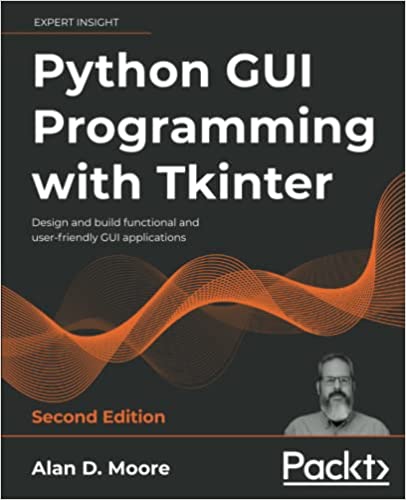 Although I’m what you might call an “advanced” Linux user, I like to keep an eye out for Linux distros that really do awesome things for the casual user. Not only do I like to have a good distro ready for friends and family that want to use Linux, but the software developer in me just enjoys seeing “user-friendly” done well. While there are no shortage of distributions that aim for user-friendliness, and no shortage of opinions on which one is the best, every now and then one distro really kicks it to a new level and builds a product that’s just perfect for new or non-technical users. Right now, Ubuntu MATE edition is that distro.
Although I’m what you might call an “advanced” Linux user, I like to keep an eye out for Linux distros that really do awesome things for the casual user. Not only do I like to have a good distro ready for friends and family that want to use Linux, but the software developer in me just enjoys seeing “user-friendly” done well. While there are no shortage of distributions that aim for user-friendliness, and no shortage of opinions on which one is the best, every now and then one distro really kicks it to a new level and builds a product that’s just perfect for new or non-technical users. Right now, Ubuntu MATE edition is that distro.
Ubuntu Mate Edition 18.04 will be Great for new users!
Building a Linux system for a Child, part2: Distros and software
The last article in this series described some of the more general realities of running Linux on a child’s computer. Now that I’ve (surely) convinced you to go ahead an put GNU/Linux on your child’s computer, it’s time to get down to nuts and bolts: which distribution, and what software?
Backporting with apt-src
So often with Linux distributions, the choice is between running a bleeding-edge system, or sticking with stable (and sometimes stale) software. Most of us settle in to a distro that balances both to our liking, but there are times when you just have to have a little newer version of a package than the default repositories offer. While it’s great to find a backport repo or PPA that offers newer stuff, sometimes that’s not possible.
So for times like that, I’m going to describe a method by which Debian or Ubuntu users can backport their own software using handy little tool called “apt-src”.
Debian for Ubuntu people
It’s no secret that many people’s first Linux experience these days is on Ubuntu; yet as they — for one reason or another — find themselves needing to branch out into the wider Free OS world, Debian is often the next stop along the road. Having introduced a few Ubuntu users (in real life or online) to Debian, I’ve noticed a few common stumbling blocks, and thought it might be nice to offer a little guide for those making the transition (or expansion) to Ubuntu’s parent distro.
It’s also no secret that there tends to be a bit of friction between the Debian and Ubuntu communities, both users and developers, for a variety of reasons. For the record, I appreciate and use both distributions quite a bit, so I hope that this article will help users from both camps have a healthy appreciation for the other.
Ubuntu Studio 12.04
Not so long ago, I posted about my attempts to bring my old DAW system back to life with Lubuntu. Emboldened by my success, and eager to get it on a nice firm LTS-release foothold, I tried to upgrade it to Precise Pangolin a few weeks ago. Sadly, the results were not so great: after upgrading, I ran afoul of a mysterious bug that caused Ardour, Audacity, and Hydrogen (and possibly other programs) to segfault when I started them. Despite my best efforts to track down the error (probably caused by my liberal use of PPAs and 3rd-party repositories), it became clear I needed to start afresh.
This time I decided to skip a bit of the DIY and just grab a ready-made audio production distro; after all, there are plenty of them out there, aren’t there? Well, the hunt began for an audio-production oriented distro that would work decently on an older 32-bit system while promising future updates; and yes, believe me, my not-so-fond-of-Ubuntu friends out there, I didn’t limit myself to ‘buntuland. Yet search as I might, every project I found seemed either at least 18 months stale (if not out-and-out abandoned), or a one-man project based on Debian or Ubuntu anyway. In the end, Ubuntu studio seemed best to fit the bill. So I downloaded the nearly 2 GB .iso file, popped it on my flash drive, and loaded it onto the old workhorse; and here, dear reader, are my findings so far…
LibreOffice vs. OpenOffice
Michael Meeks, a Suse developer who is instrumental in the LibreOffice community, has posted a good article on his “Stuff Michael Meeks is doing” blog summarizing the differences between OpenOffice and LibreOffice. Ok, granted that he’s a LibreOffice guy and it’s a little biased, I think it’s nevertheless a pretty good, factual summary about the history of the two projects, and the differences to the end-user about them.
There still seems to be a lot of confusion out there about this, and sadly a lot of people downloading OpenOffice are not aware of the situation are are downloading something that is way behind technically, and as far as I can see hasn’t got much of a future at this point (though that could change). The difference is particularly important to Ubuntu users, many of whom may be upgrading in the next few months from 10.04 to 12.04 and (as a result) apparently “switching” to LibreOffice.
Ironically, though, the “OpenOffice” that they’ll be switching from is actually a lot closer to the LibreOffice they’re switching to than anything currently available under the name “OpenOffice”. You see, before LibreOffice existed, there was a project called Go-OO. Go-OO was funded primarily by Novell, and essentially consisted of a comprehensive patch set for OpenOffice that added features or fixes which (mainly for licensing reasons) could not be included in the “official” OpenOffice from Sun.
Nearly every major Linux distribution (including Ubuntu, Debian, Fedora, etc) shipped Go-OO (in addition to other distro-specific patches) in place of Sun OpenOffice, even as far back as 2.x versions. For the sake of familiarity (I assume) they packaged it under the name OpenOffice, despite the differences.
When LibreOffice was created, the Go-OO patches were among the first things to be folded into the forked codebase, along with various patches from major Linux distributions (e.g. RedHat, Debian, etc). The Go-OO development community (including Meeks himself) also mostly threw in their lot with LibreOffice.
Anyhow, take a look at Michael’s post, particularly the nice graphic comparison of the two. I think it’s pretty clear which one you’ll choose.
Trying out Ubuntu 12.04? My tips
Ubuntu 12.04 is nearly upon us, and probably will be by the time anyone bothers to read this post. With all the excitement and general hubbub around it, I imagine it will result in a lot of people unfamiliar with Ubuntu or GNU/Linux trying it out for the first (or first-in-a-long-) time.
There is a lot of good general advice out there, but I’m going to give a few specific tips of my own for folks trying it out:


